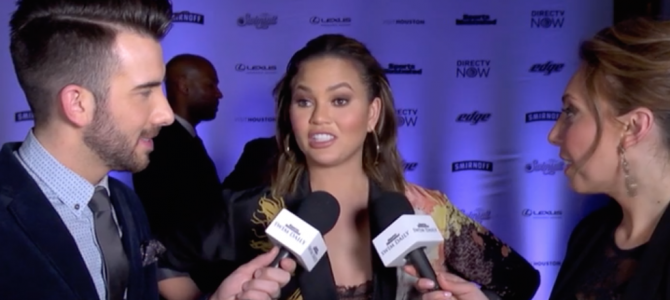
Back in high school I learned about something called the appeal to false authority, or argumentum ad verecundiam. It is a logical fallacy in which an argument draws at least some of its support from an “authority” figure who lacks any expertise in the matter at hand.
One common manifestation of the appeal to false authority is in advertising, when celebrities and public figures endorse products for which they possess no more credibility than your best friend or mother-in-law. You know the kind I mean: buy gold because William Devane does, wear this because Chrissy Teigen does, or drive a Lincoln because Matthew McConaughey says to.
Some data suggests celebrity endorsements work. Perhaps that’s why celebrities have gotten the idea they can influence a lot more than our shopping habits. Or maybe it’s just their overblown egos leading them to conclude it’s their job to make us better people. Whatever the reason, it seems that hardly a day goes by without a movie, music, or sports personality going out of his way to tell the American public how to think.
What I can’t quite figure out is why we listen to them, particularly those of us who increasingly find the prevailing culture to be hostile to our values. In my social media feeds I regularly see Christians engaging in horror and hand-wringing about this or that celebrity’s latest outrageous utterance. I have done it myself.
On the flipside, I also see links to articles about that most unusual of specimens: celebrities who actually agree with me on politics or social issues. Who cares? In the false authority hall of fame, celebrities are at the top of the list. Why do we pay them any mind? It’s one thing to let them influence our clothing and beer choices, but why do we care what they think about immigration, abortion, or foreign policy?
Cultural Leaders Often Don’t Know Your Best Interests
Rod Dreher’s new book “The Benedict Option” offers some insight. Dreher says “we’ve been very comfortable in the United States, because Christians have felt like this is our home . . . where things operate more or less according to Christian values, even though the United States is a secular nation.” In other words, we still haven’t grasped the enormous expanse that separates us from the rest of the culture.
Now, Dreher points out that many who identify as Christians really aren’t—they’re claiming the name, but not living it out. His Benedict Option is a call for devout people to realize the extent of our alienation from the culture and to focus on finding meaning and cohesiveness in our local churches and communities, identifying those who share our values and working together to strengthen and build each other up in living out those values. Hollywood is about as far removed from that as it can get.
I can think of hundreds of people whose opinions ought to matter more to me than whatever Hollywood star is currently flapping his gums: my spouse, parents, children, siblings, friends, co-workers, neighbors, pastor, church family, elected representatives—heck, even my dog. I may not agree with everyone in the preceding list (other than my dog—I always agree with my dog), but at least in being a part of my life they have earned a seat at the table.
The simple facts that I have a relationship with them and that their actions have the power to affect my existence grants them a level of authority and credibility that the entertainment industry simply doesn’t have. What if the next time I see a vapid article about Amy Schumer’s latest eye-rolling escapade, instead of reading it I invite my next-door neighbor over for a cup of coffee and spend some time building a real connection with someone?
I’m Not Going to Listen to Your Vapid Grandstanding
A few weeks ago the new live-action “Beauty and the Beast” entered theaters. If you read The Federalist at all during that time, you know there has been some controversy surrounding the movie’s content. I decided, before the movie even opened, that I would not see it. But it’s not for the reason you might think.
As someone who doesn’t have young children clamoring to see the film, I am not worried about having to explain the alleged homosexual content, which is reportedly fleeting and subject to interpretation anyway. Instead, I am weary of Hollywood’s continued insistence on using its work product to school me in politically correct thought.
Whether or not the “gay moment” is actually a moment, it is the thing on which director Bill Condon chose to focus in the lead-up to the movie’s release. In doing so, he made clear that he is less interested in re-telling a nearly 300-year-old children’s fairy tale than in engaging in twenty-first-century proselytizing. Withholding my entertainment dollar is one small way I can say no.
This is not to suggest I expect celebrities to keep their views to themselves. They are as free as the next person to say what they think and to spend their earnings supporting the causes they believe in. But I am equally free to ignore them.
To my fellow biblically faithful and socially conservative friends: please join me. Stop paying attention, analyzing, discussing and dissecting every stupid (or even non-stupid) celebrity opinion. Stop paying for indoctrination masquerading as entertainment. Stop caring which celebrity has made an odious moral choice and which has lived his life in a way you approve of.
Forget the boycotts. It’s time to take a page from Al-Anon’s playbook and practice detachment. That doesn’t mean we have to completely withdraw from the culture, but when the loudest voices in that culture presume to tell us that they know better than we do how we ought to feel, think, and believe, it’s time to stick our fingers in our ears and call them the false authorities that they are.









